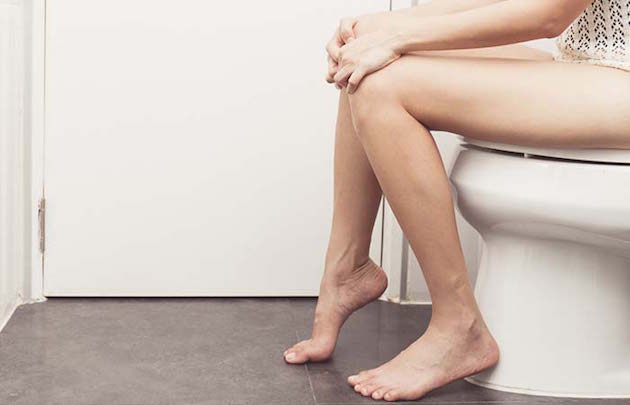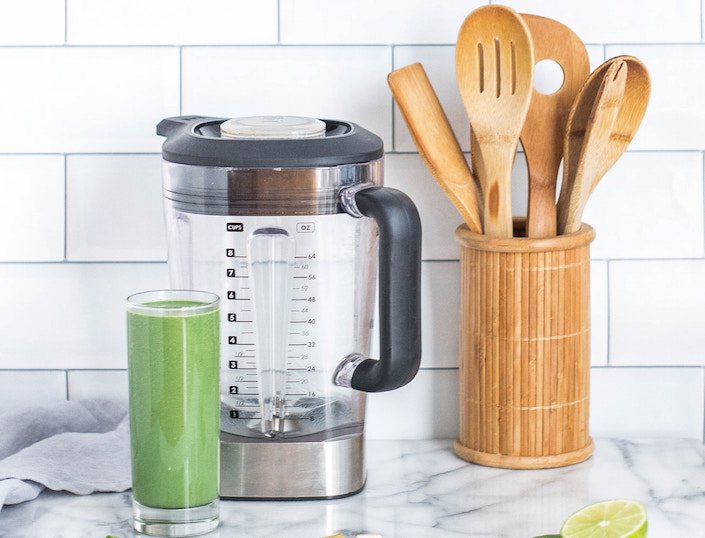- You are here:
- Home »
- Remedies »
- How to Stay Regular on a Low Carb Diet: 5 Simple Ways to Get Things Moving

How to Stay Regular on a Low Carb Diet: 5 Simple Ways to Get Things Moving
Wondering how to stay regular on a low carb diet? Welcome to the club. So many folks who’ve gone low carb have a long and illustrious history of grain consumption.
So when you finally decide to lose those extra pounds and cut out the load of carbs that your system has become used to, it’s going to rebel. Cutting down on bread and pasta may seem harmless enough, right? That is until a week or two later, when you’re suffering from constipation and a general disdain for living!
We can help you with both – once you clear your constipated pathways, your outlook on life should improve dramatically. You’ll walk lighter, your days will be brighter and all will be good.
So let’s get get to it: here’s how to stay regular on a low carb diet!
Stay Hydrated
Are you drinking enough water? It sounds so simple but it’s possible this can be your only problem.
In a few clinical trials, people who did not drink enough water were not going to the bathroom regularly. Drinking water has also proven to be one of the most cost effective “laxatives” time and time again. Natural spring water rich in minerals seems to have a better effect at alleviating the bowels than other water.
Choose Your Carbs Wisely
Going low carb doesn’t necessarily mean going no carb. Especially since some carbs can greatly help move things along – and still be mighty good for weight loss and overall health.
It all comes down to the kind of carbs you choose to eat. Here’s a simple breakdown of simple carbs vs complex carbs and how to choose wisely…
Simple Carbs
When one talks about carbs, we often think of bread, pasta, wheat, rice or potatoes. These carbohydrates are known as simple carbs; in essence, white starchy carbs that are low in fiber and that digest quickly, resulting in sudden blood sugar spikes. Simple carbs also include highly refined foods, like candy, syrup or artificially enhanced condiments.
High blood sugar levels means more inflammation (the main cause of tummy bloating), which can result in constipation and other tummy upsets.
Furthermore, the body reacts to these glucose surges by secreting high amounts of insulin, which also causes inflammation and gut damage when it exceeds the amount of glucose in the bloodstream. Eventually the body becomes resistant to insulin, no longer sending signals to stop secreting it and eventually not being able to produce it at all. This is one of the main reasons many diabetics are constipated!
Fiber is also key to healthy bowel movement and most people do not get enough of it from their diets.
Refined, starchy carbs have very little fiber, yet these tend to be the only source of fiber in people’s diets! Now you’re on a low-carb diet, restricting your precious source of fiber and piling up on fats and proteins. Ever heard of ‘bulking up your stool’? Without adequate fiber, your body has nothing it can use to push along the contents of your stomach for a healthy bowel movement.
So what carbs should you eat? The answer: complex carbs!
Complex Carbs
Complex carbs are high in fiber and usually consist of easy-to-digest vegetables and low-glycemic load whole grains. Eating complex carbs that are unrefined and high in fiber have shown to reduce constipation .
Hold on – what is glycemic load?
You may have heard of the glycemic index, where each food has been assigned a number to show what sugar content it has (100 being equivalent of glucose itself). Glycemic load, on the other hand, shows the immediate effect a food has on your blood sugar levels after you ingest it. The lower the glycemic load of a carb, the slower you digest it and the less your blood sugar levels will spike after your meal!
Complex carbs have been shown to reduce inflammation, as well as improve the body’s production of a hormone called Adiponectin. Adiponectin is a command signaling hormone that also decreases inflammation and improves insulin sensitivity in diabetics.
Here’s a list of whole grains with a low glycemic load (anything less than 25):
- Oat Bran 8
- Bulgur 12
- Rye 13
- Buckwheat 14
- Couscous 18
- Quinoa 18
- Barley 19
- Spelt 21
- Amaranth 21
- Rolled Oats 25
Remember to take into account serving sizes when looking at glycemic load tables! The above portions are each for one cooked serving only.
In terms of vegetables, try to eat a literal rainbow variety in your diet. If you never thought a low-carb diet could be colorful…surprise!
Vegetables and legumes that are particularly great to include in your diet are:
Vegetables
- Broccoli, cooked 78g (1/2 cup) 0
- Cabbage, cooked 75g (1/2 cup) 0
- Celery, raw 62g (1 stalk) 0
- Cauliflower 100g (1 cup) 0
- Green Beans 135g (1 cup) 0
- Mushrooms 70g (1 cup) 0
- Spinach 30g (1 cup) 0
Legumes
- Baked Beans 253g (1 cup) 18.2
- Chickpeas, Boiled 240g (1 cup) 13.3
- Kidney Beans 256g (1 cup) 7
- Lima Beans 241g (1 cup) 7.4
- Lentils 198g (1 cup) 7
- Pinto Beans 171g (1 cup) 11.7
Corn, potato and fruits/vegetables that are canned in syrup will promote dramatic blood sugar level spikes and thus increase the risk of constipation.
Eat Healthy Fats
If you have a sweet tooth, this is going to be unfortunate news, but did you know that sugar acts like an opioid in the brain and confers many of the same damaging, addictive and constipating effects?
Dairy products contain large amounts of lactose (a form of sugar) and have shown to worsen constipation in those with Irritable Bowel Syndrome. A low-carb diet rich in animal fats have also been linked to an increased mortality rate – in other words, this way of going about your diet can actually be worse for your health.
Other fats that are saturated have also been linked to increased inflammation and tummy troubles, such as sunflower oil, canola oil, palm oils, margarine and margarine substitutes.
So what fats should you be stocking up on? Healthy fats, of course.
Olive oil is a classic. The Mediterranean people were certainly onto something when they pressed the first olives for oil. This wonderful plant is rich in nutrients that help protect your entire body, improve your immune function, reduce inflammation, as well as helping your bowel function. Not to mention it’s a heart-healthy oil that has been shown to improve risk factors for obesity, diabetes, hypertension and cardiovascular disease.
Coconut oil is also an excellent fat to include in your diet to reduce free radical damage and constipation, dramatically decreasing inflammation in your body and helping your gut to function better. It’s also delicious to cook with!
Stock Up On Helpful Foods
There are certain foods out there that you can easily add to your diet to help give things a boost (or a shove) if you’re still battling down there.
Foods that are rich in Vitamin C are especially great since on top of its benefits for better immunity and clearer skin, Vitamin C has stepped into the limelight as a natural laxative.
In a case study done, chronic constipation in children was proven to be the result of not enough plant based food in their diets, which caused them to lack nutrients such as vitamin C. This powerful antioxidant has also been shown to decrease inflammation and aid in most bodily functions.
It follows on that one should include vitamin C rich foods in one’s low-carb diet. Excellent sources of Vitamin C come from red berries, particularly strawberries, cranberries and raspberries. Berries particularly are full of water-soluble goodies and come off low on the glycemic index! Yum.
Another Vitamin C-rich that particularly great for constipation is kiwifruit. Surprisingly, kiwis are another potent natural laxative and are a rich source of dietary fiber. They have shown to alleviate constipation in several studies and they make a really tasty addition to fruit salad – double win!
A Smoothie a Day…

Last but not least, one daily practice that’s helped not just myself but my entire family stay regular is a green smoothie in the morning. It takes less than 5 minutes to whip up, it allows you to get a heap of low-carb nutrition into your system, and it’s guaranteed to get your bowels moving.
The standard recipe we always use is:
- Greens: Kale, spinach, arugula, microgreens, basil, beet greens, bok choy, etc.
- Berries: Blueberries, raspberries, blackberries, strawberries, etc.
- Seeds and nuts: Walnuts, almonds, pine nuts, pumpkin seeds, sunflower seeds, etc.
- Yogurt: Full-fat, no-sugar, organic if possible
- Banana
Simply choose one or more from each group, add a supplement if you want (my favorite at the moment is Spirulina) and blend! It’s the perfect thing to have first thing in the morning and it acts like a natural laxative.
As you can see, there’s more than one way to achieve regularity on a low carb diet.
In a nutshell, eat many fibrous fruits and vegetables, drinks lots of water, stick to low-glycemic grains and avoid processed foods. Oh, and certain foods – and smoothies – will be your new BFFs on this journey. Not only will this help you to stay regular while on your low-carb diet, but you’ll probably shed a few extra pounds and feel better too!
